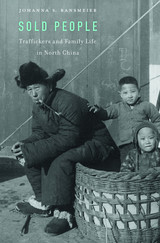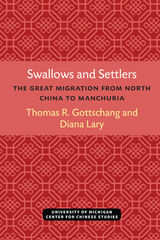
The Mongol conquest of north China between 1211 and 1234 inflicted terrible wartime destruction, wiping out more than one-third of the population and dismantling the existing social order. In the Wake of the Mongols recounts the riveting story of how northern Chinese men and women adapted to these trying circumstances and interacted with their alien Mongol conquerors to create a drastically new social order. To construct this story, the book uses a previously unknown source of inscriptions recorded on stone tablets.
Jinping Wang explores a north China where Mongol patrons, Daoist priests, Buddhist monks, and sometimes single women—rather than Confucian gentry—exercised power and shaped events, a portrait that upends the conventional view of imperial Chinese society. Setting the stage by portraying the late Jin and closing by tracing the Mongol period’s legacy during the Ming dynasty, she delineates the changing social dynamics over four centuries in the northern province of Shanxi, still a poorly understood region.

A robust trade in human lives thrived throughout North China during the late Qing and Republican periods. Whether to acquire servants, slaves, concubines, or children—or dispose of unwanted household members—families at all levels of society addressed various domestic needs by participating in this market. Sold People brings into focus the complicit dynamic of human trafficking, including the social and legal networks that sustained it. Johanna Ransmeier reveals the extent to which the structure of the Chinese family not only influenced but encouraged the buying and selling of men, women, and children.
For centuries, human trafficking had an ambiguous status in Chinese society. Prohibited in principle during the Qing period, it was nevertheless widely accepted as part of family life, despite the frequent involvement of criminals. In 1910, Qing reformers, hoping to usher China into the community of modern nations, officially abolished the trade. But police and other judicial officials found the new law extremely difficult to enforce. Industrialization, urbanization, and the development of modern transportation systems created a breeding ground for continued commerce in people. The Republican government that came to power after the 1911 revolution similarly struggled to root out the entrenched practice.
Ransmeier draws from untapped archival sources to recreate the lived experience of human trafficking in turn-of-the-century North China. Not always a measure of last resort reserved for times of extreme hardship, the sale of people was a commonplace transaction that built and restructured families as often as it broke them apart.

This book is about the ritual world of a group of rural settlements in Shanxi province in pre-1949 North China. Temple festivals, with their giant processions, elaborate rituals, and operas, were the most important influence on the symbolic universe of ordinary villagers and demonstrate their remarkable capacity for religious and artistic creation. The great festivals described in this book were their supreme collective achievements and were carried out virtually without assistance from local officials or educated elites, clerical or lay.
Chinese culture was a performance culture, and ritual was the highest form of performance. Village ritual life everywhere in pre-revolutionary China was complex, conservative, and extraordinarily diverse. Festivals and their associated rituals and operas provided the emotional and intellectual materials out of which ordinary people constructed their ideas about the world of men and the realm of the gods. It is, David Johnson argues, impossible to form an adequate idea of traditional Chinese society without a thorough understanding of village ritual. Newly discovered liturgical manuscripts allow him to reconstruct North Chinese temple festivals in unprecedented detail and prove that they are sharply different from the Daoist- and Buddhist-based communal rituals of South China.

READERS
Browse our collection.
PUBLISHERS
See BiblioVault's publisher services.
STUDENT SERVICES
Files for college accessibility offices.
UChicago Accessibility Resources
home | accessibility | search | about | contact us
BiblioVault ® 2001 - 2024
The University of Chicago Press









